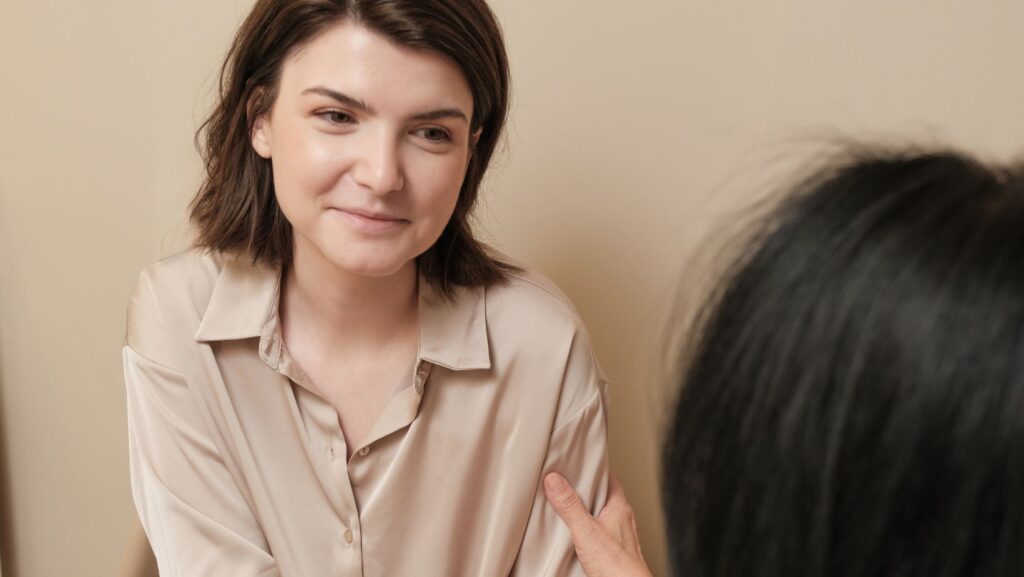Parenthood has a profound way of bringing unresolved emotions and hidden wounds to the surface. The very things we experienced as children, whether neglect, criticism, emotional absence, or harsh discipline, can resurface when raising our own children.
These emotional echoes, known as childhood triggers, often influence how we react under stress. If our child misbehaves or challenges our authority, we might find ourselves responding as the hurt children we once were.
Healing these triggers is an essential part of becoming a calmer, more connected parent. It’s not about perfection but awareness, learning to pause before reacting and understanding why certain behaviors evoke intense feelings.
By addressing these hidden wounds, parents create emotional freedom for themselves and a safer, more nurturing environment for their children.
Understanding Childhood Triggers
Childhood triggers are deeply rooted emotional reflexes formed during our early years. They often arise from unmet needs, unresolved pain, or internalized patterns of fear and shame.
For instance, if you grew up in a home where mistakes were harshly punished, your child’s clumsiness might trigger disproportionate anger or anxiety. Similarly, if emotional expression was suppressed in your family, your child’s strong feelings might cause discomfort or frustration.
These reactions are usually not conscious choices but learned survival responses. However, they become barriers to patience and empathy in parenting. This dynamic is critical because Adverse Childhood Experiences (ACEs) are common.
The CDC reports that three in four high school students experience one or more ACEs. These experiences can lead to toxic stress and difficulty forming stable relationships. These effects can, in turn, be passed down to one’s own children.
Recognizing your trigger as an “echo of the past” is the first, vital step. This awareness allows you to shift from automatic, defensive reactions to mindful understanding, starting the journey toward recovery.
The Link Between Unhealed Wounds and Parenting Style
Our early family dynamics profoundly shape our parenting. Unresolved emotional wounds cause parents to swing to extremes. Some become overly controlling to avoid perceived chaos, while others grow excessively permissive to escape conflict.
Our reactive behaviors, like yelling or shutting down, often have deep roots. They may arise from modeling what our parents did or from old coping mechanisms that once helped us feel safe.
This cycle is harmful. A UK study found that two in five children regularly experience adults using hurtful words to blame or insult them. More than half experience this weekly. Such verbal abuse can damage a child’s confidence, alter brain structure, and lead to anxiety and depression.
Healing requires recognizing that your fear-driven reactions are not conscious choices. When triggered, pause and reflect: Whose voice am I hearing – the present, or the past? This self-compassionate reflection is how you consciously rewire your emotional responses, replacing inherited fear with empathy and presence.
The Need to Seek Professional Guidance Through Counseling
Healing deeply ingrained childhood triggers often requires more than self-awareness. A mental health counselor provides the professional guidance necessary for this emotional transformation. These trained professionals create a safe space to explore your personal history and its influence on your parenting style. This addresses both underlying trauma and present stressors.
Through talk therapy, cognitive strategies, and trauma-informed care, counselors help identify patterns rooted in early life. They also teach emotional regulation techniques, such as mindfulness and grounding, to manage reactivity during challenging moments.
Additionally, they assist in reframing harmful beliefs, such as redefining love as unconditional rather than performance-based.
For individuals interested in pursuing a counseling career, Walsh University notes that empathetic and compassionate people are well-suited for this field. With millions facing post-pandemic stress, political unrest, and grief, the demand for clinical mental health counselors is greater than ever.
Why You Should Build Emotional Awareness and Regulation
Emotional regulation is the core of calm parenting. It starts by noticing physical cues, such as a racing heart or chest tightness, which signal old emotional wounds. Pausing at these sensations creates space to reflect rather than react.
Using techniques like deep breathing, mindfulness, or grounding can restore calm. Naming your emotions (anger, helplessness) diminishes their control and teaches your children emotional literacy. When a parent takes a deep breath instead of yelling, the child internalizes that emotions are manageable, not fearsome.
This skill is crucial for children, especially since 28% of high schoolers live with a parent struggling with mental health issues, according to Psychology Today. Many teens report lacking a regulated adult at home they can turn to. Building resilience through sleep, exercise, and social support strengthens your capacity, allowing you to be the calm, reliable parent your children need.
Reconnect with Your Inner Child to Heal
At the core of healing lies the relationship with your inner child, the vulnerable part of you that still carries pain or fear. Many parents find that moments of anger toward their children mirror the very experiences they endured in their own upbringing. Practicing compassion toward your inner child allows you to soften your emotional defenses.
This process may include guided visualization, therapy exercises, or writing letters to your younger self to acknowledge their pain and offer reassurance.

Reconnecting with your inner child helps you break cycles of generational pain. As you offer yourself the nurturing that was once missing, you naturally extend the same gentleness to your children.
FAQs
How do I recognize when I’m being triggered as a parent?
You may feel sudden anger, anxiety, or helplessness that feels stronger than the situation warrants. This often signals an old emotional wound being reactivated. A pause and reflection can help identify the underlying cause.
Can a mental health counselor help even if my childhood wasn’t traumatic
Yes, a mental health counselor can help even if your childhood wasn’t traumatic. They support emotional growth, improve coping skills, and enhance self-awareness. Counseling can help manage stress, build resilience, strengthen relationships, and navigate life challenges, providing tools to make thoughtful, balanced decisions in everyday life.
How do you heal childhood trauma on your own?
Healing childhood trauma on your own involves self-awareness, reflection, and consistent self-care. Techniques include journaling, mindfulness, meditation, and recognizing emotional triggers. Setting boundaries, practicing emotional regulation, and building a supportive network of friends or mentors are key.
Healing your own childhood triggers is one of the most transformative journeys a parent can take. It requires courage, vulnerability, and often professional support from a mental health counselor who understands the complexity of early emotional wounds.
Through self-awareness and intentional healing, parents shift from reacting out of pain to responding with empathy and presence. In doing so, they break long-standing patterns and create a legacy of calm, connection, and emotional freedom for the next generation.
